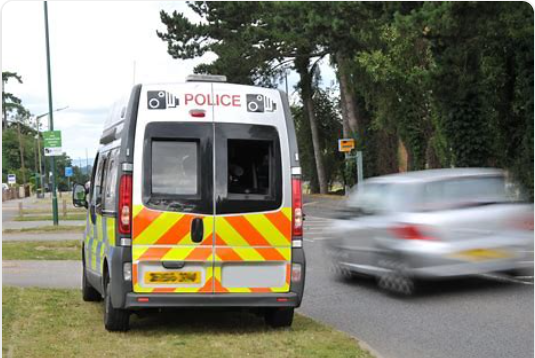
As well as flashing your lights to warn other drivers, this could also apply if you post the location of a police speed trap on social media channels, like Facebook, Twitter and Instagram.
Motorists could face-four figure fines if they use social media to warn others about police speed traps or by flashing their headlights.
A recent report has found that drivers who go out of their way to help other road users could be hit with a penalty of up to £1,000.
Drivers are only permitted to use their headlights to “let other road users know that you are there” and not to attempt “to convey any other message”, according to the Highway Code. If drivers are warning others about a police speed trap, they could be in breach of section 89 of the Police Act 1997.The letter of the law states that it’s an offence to “wilfully obstruct a constable in the execution of his/her duty”.
And the warning does not just relate to the road itself but to social media too
As well as flashing your lights to warn other drivers, this could also apply if you post the location of a police speed trap on social media channels, like Facebook, Twitter and Instagram.
In recent months, traffic and travel groups on Facebook have gone from strength to strength, with some boasting thousands and thousands of members. The groups share traffic details, like road accidents, delays and queues, as well as tell each other parking tips and more.
But the next time you take to social media, be sure to keep the information of where you have seen police speed traps to yourself.Otherwise you could be forking out a huge sum to police if they decide to fine you.
What does the law say
The Highway Code, under rule 110, states: “Only flash your headlights to let other road users know that you are there.
“Do not flash your headlights to convey any other message or intimidate other road users.”
But if drivers do choose to flash to warn others about a speed trap implemented by the police, they could be in breach of section 89 of the Police Act 1997.Under this law it states that it is an offence to “wilfully obstruct a constable in the execution of his/her duty.”
Therefore, police could charge anyone who appears to be obstructing their ability to conduct speed checks on other motorists, with this criminal offence. The maximum fine for obstructing a police office is capped at level three on the fine scale, with a maximum penalty of £1,000.
